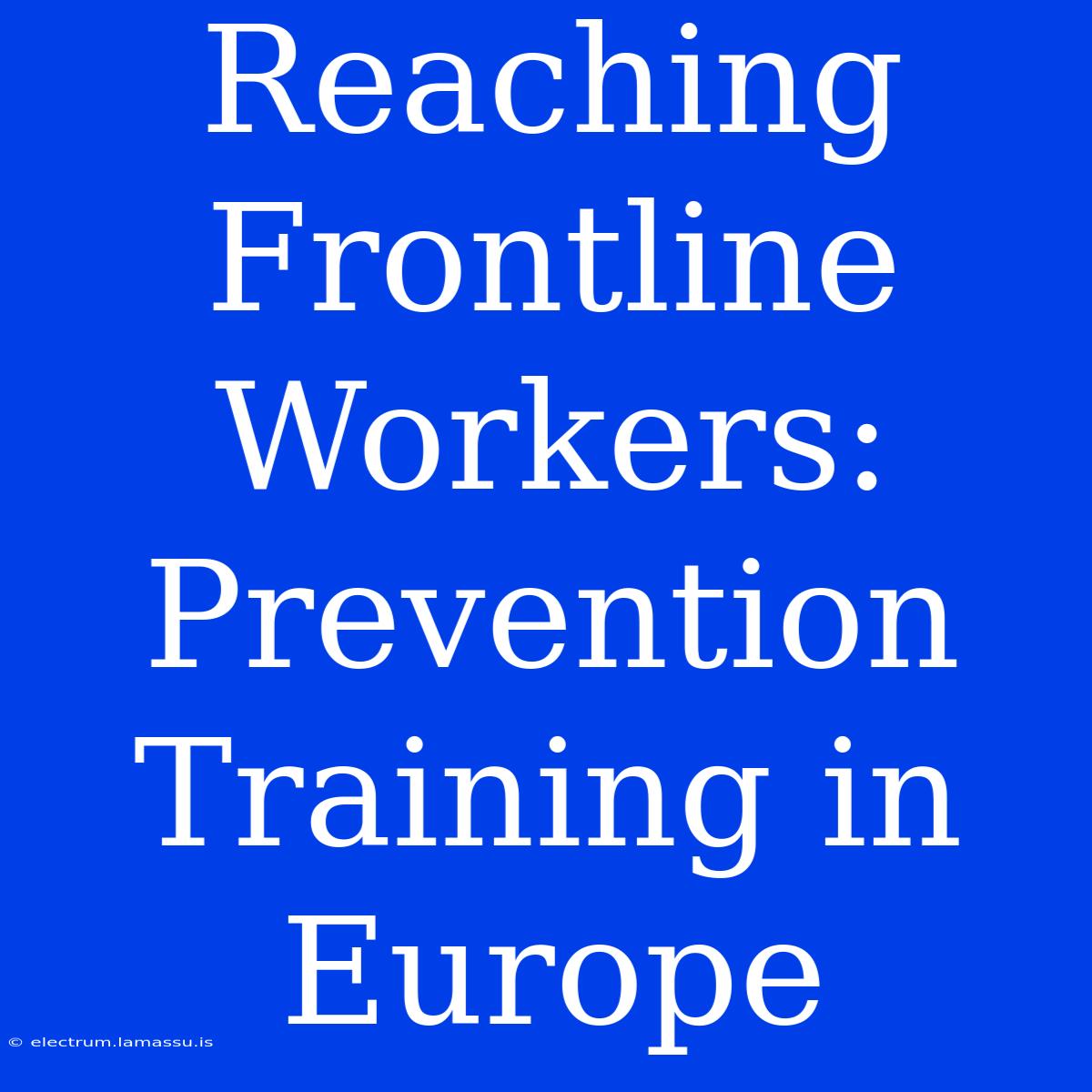Reaching Frontline Workers: Prevention Training in Europe
Are frontline workers sufficiently equipped with the knowledge and skills to prevent accidents and injuries? Frontline worker safety is a critical component of a successful workplace safety culture in Europe. This article delves into the complexities of reaching frontline workers with effective prevention training, highlighting key challenges and offering actionable solutions.
Editor Note: Reaching Frontline Workers: Prevention Training in Europe has been published today. Frontline worker safety is a critical concern across Europe, impacting both individual well-being and business productivity. This review explores the current state of prevention training in Europe and outlines strategies for improvement.
Why this topic is important: Frontline workers are often the most exposed to workplace hazards. Effective prevention training empowers them with the knowledge and skills to identify risks, implement safe practices, and ultimately, prevent accidents. It's a fundamental aspect of creating a culture of safety that benefits both workers and employers.
Our Analysis: This article analyzes the challenges and opportunities related to frontline worker prevention training in Europe. We've consulted with experts, reviewed relevant research, and analyzed existing training initiatives to provide a comprehensive overview and actionable recommendations.
Key Takeaways:
| Key Takeaway | Description |
|---|---|
| Language Barriers: | Cultural and linguistic diversity create challenges in reaching frontline workers with appropriate training materials. |
| Shift Patterns and Time Constraints: | Flexible schedules and limited time availability pose obstacles for frontline workers attending traditional training sessions. |
| Lack of Standardization: | The absence of harmonized prevention training standards across Europe creates inconsistencies and potential for gaps in knowledge and skills. |
| Digital Literacy: | Varying levels of digital literacy among frontline workers can limit access to online training programs or digital safety resources. |
| Engaging and Relevant Content: | Training materials must be tailored to the specific needs and roles of frontline workers, fostering engagement and practical application. |
Reaching Frontline Workers with Prevention Training
Challenges and Opportunities:
- Language Barriers: Effective communication is crucial for successful training. This requires adapting materials to the diverse linguistic needs of frontline workers.
- Shift Patterns and Time Constraints: Flexible scheduling and innovative training delivery methods are essential to accommodate the unique work schedules of frontline workers.
- Lack of Standardization: Harmonized European standards for prevention training could promote consistency, ensure higher quality, and facilitate cross-border collaboration.
- Digital Literacy: Incorporating digital training programs that are accessible to workers with different digital skills is crucial for wide-reaching impact.
- Engaging and Relevant Content: Training should be interactive and practical, focusing on real-world scenarios and demonstrating direct applicability to everyday tasks.
Key Aspects:
- Target Audience: Identifying the specific needs and roles of frontline workers in different industries is essential to tailor training content effectively.
- Training Methods: A variety of training delivery methods should be employed, including classroom sessions, online courses, interactive simulations, and on-the-job coaching.
- Content Development: Training materials should be concise, clear, and engaging, using visuals, practical examples, and real-world scenarios to foster understanding.
- Assessment and Evaluation: Measuring the effectiveness of training programs through regular assessments and feedback mechanisms is essential to ensure continuous improvement.
Closing Message: Reaching frontline workers with effective prevention training is crucial for building a safer and more productive work environment across Europe. By addressing the unique challenges and embracing innovative solutions, employers and training providers can empower workers with the knowledge and skills to prevent accidents and injuries, fostering a culture of safety and well-being.

